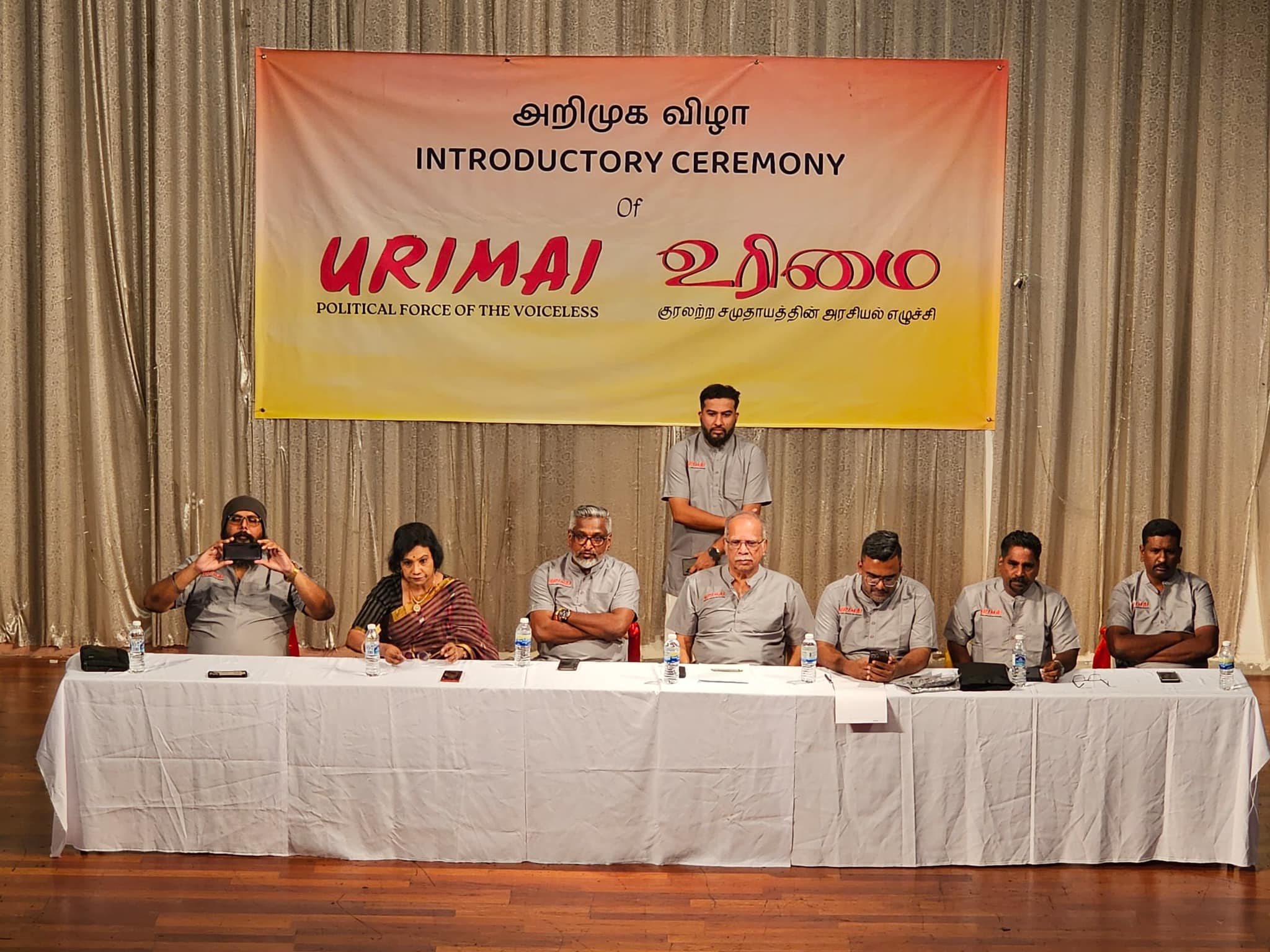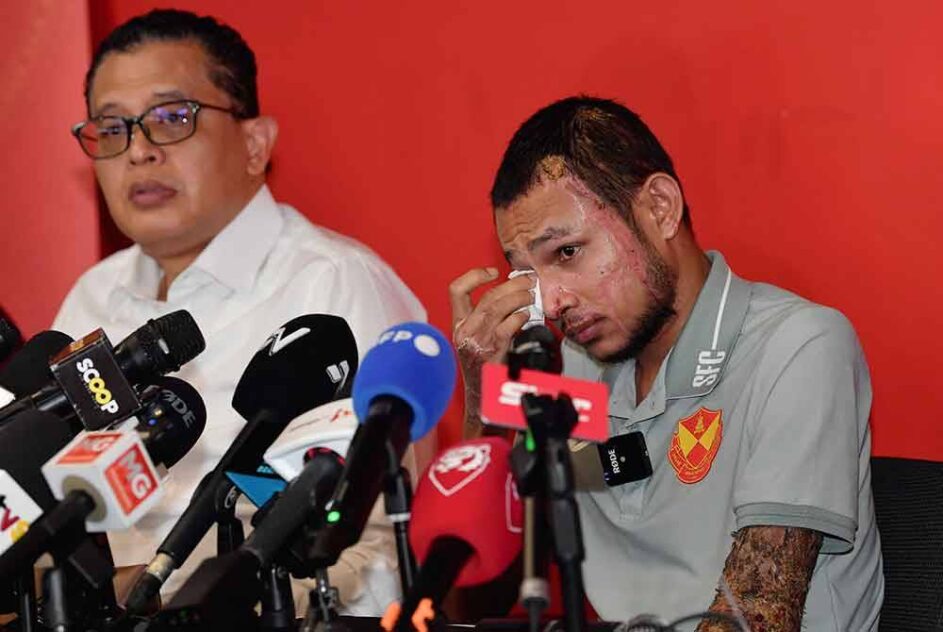IN conjunction with Wesak Day yesterday (May 22), the United Rights of the Malaysian Party (Urimai) officially launched its first service centre in Buntong, Perak under the leadership of its interim council member Kamache Dorairajoo.
Kamache who was the former state assemblywoman of Sabai in Pahang left DAP at the same time as me and other interim council members such as David Marshel, Satees Muniandy, Krishnasamy and Shamsher Singh Thind who had left much earlier
Dissatisfaction with the DAP and Pakatan Harapan (PH) over their miserable representation of Indians was the main reason why we left the DAP.
Our continued presence in the DAP would have made mockery of our struggle to improve the lives of the predominantly working-class Indians. It is childish and immature on the part of some disgruntled elements to think that our struggle is predicated on “revenge politics”.
Revenge politics has no place in the long struggle to dignify and empower the Indian community especially among the powerless, the discriminated and marginalised.
Urimai was formed more than six months ago by six members of the Urimai interim council. To date, we have established committees in states like Penang, Perak, Kedah, Selangor, Negri Sembilan, Johore and Pahang.
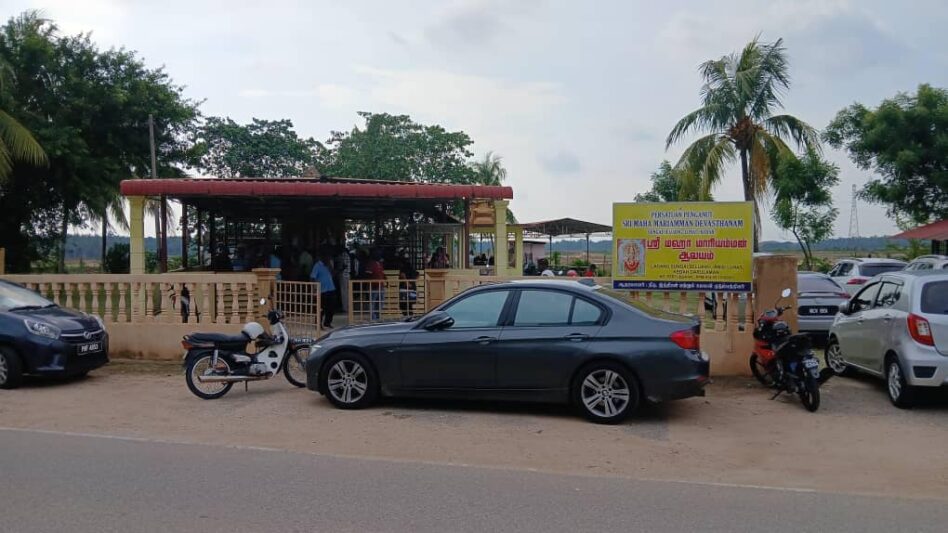
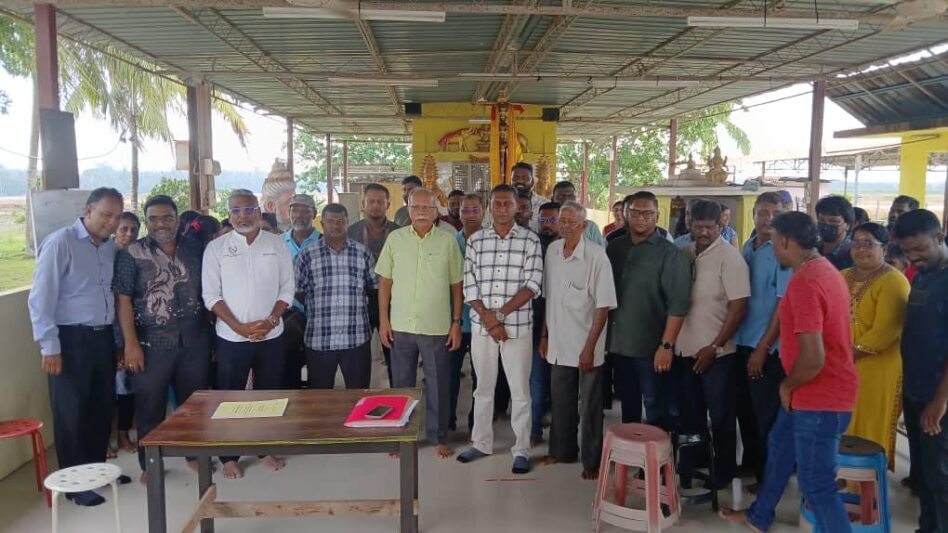
Venomous accusations
The formation of Urimai was not an easy task. There were detractors who argued again the formation saying that there were too many Indian political parties in the country.
We defended the formation by saying even if there are too many Indian parties, no one Indian party genuinely takes up the problems faced by the Indians in the country.
The leaders of these parties were mainly interested in seeking accommodation with the present national coalitions for power, positions and perks. Hence the need for a new political formation and the answer was invariably Urimai.
The first litmus test for gauging the popularity of Urimai was in the recently concluded Kuala Kubu Baharu (KKB) state by-election.
Urimai did not field a candidate but was involved in the campaign to urge primarily Indian voters not to vote for the PH/DAP candidate.
Even though the PH-led coalition won the by-election, this came at the great expense of alienating the Indian community. We understand that less than 50% of the 18% of Indian voters turned up to vote. Out of the 50% or less turnout, we think only 35% voted in favour of the PH/DAP candidate.
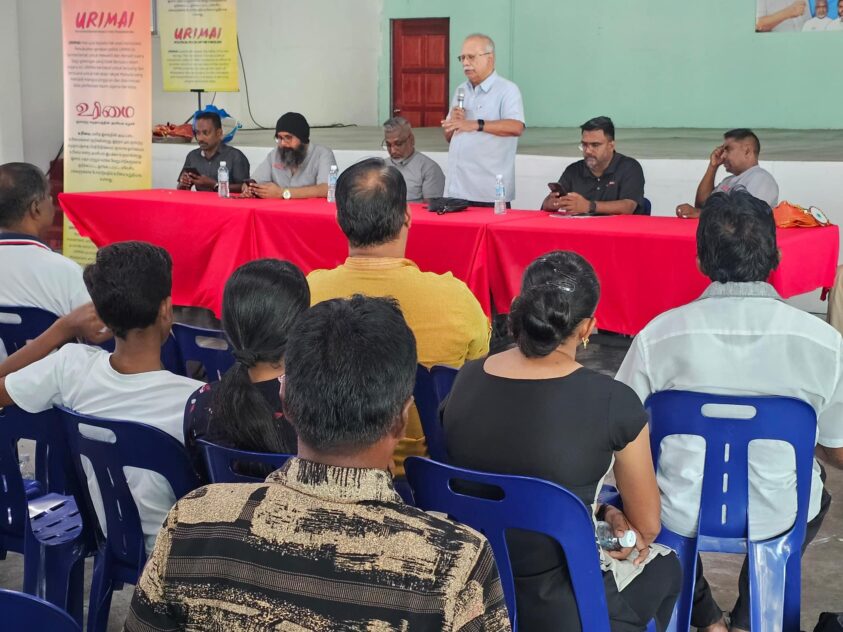
In other words, we suspect about 15% to 20% of the total number of Indian voters simply refused to vote in the by-election. Whether this was a boycott or reluctance to vote is something that needs to be established.
We know from reliable sources that the PH-led coalition went into panic mood with the emergence of Urimai in the KKB polls. This would explain why so much venom was spat at Urimai by the leaders of the PH-led coalition.
Urimai’s message to KKB Indian voters was simple and straightforward – don’t vote for the PH/DAP candidate because of the betrayals, broken promises and humiliation of the Indian community.
Resistance to approving Urimai
Urimai’s presence in KKB was a source of concern and worry to the PH-led coalition leaders. There was fear that if Indian voters boycotted or refused to vote in favour of the PH-led coalition, the chances of the coalition losing was there.
This is the reason behind the development assistance that was poured into the area and not to forget the revival of the 26-year-old estate housing project for five estates in the Bistari Jaya vicinity costing RM75 mil.
The question is: how come the project was suddenly revived after a lapse of 26 years? Was the announcement of this project result of the wisdom of the Madani government or alternatively, the fear of Urimai?
We believe that it was the presence of Urimai, the fear that Indians might not vote for the PH-led coalition or Indians might boycott the polls, which resulted in the announcement of reviving the long overdue housing project.
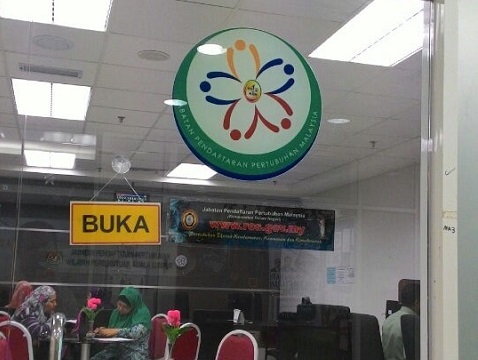
Urimai is still waiting patiently to be registered. Given the KKB experience, there might be reluctance on the part of the government– in this regard the Registrar of Societies – to register Urimai.
However, the government should not forget that the freedom of association is a fundamental right that is protected by the Federal Constitution.
Urimai has the right to seek legal recourse if its registration is not forthcoming in the near future.
Presently, Urimai functions as a social movement taking up the problems and issues in the Indian community.
It is sad and tragic that after decades of political independence, the Indian community is still subject to racial and religious discrimination. The Madani government of Prime Minister Datuk Seri Anwar Ibrahim is a big disappointment to the Indian community.
Urimai might be a small party but it will promise to take up the problems of the Indian community without fear or favour. – May 23, 2024
Former DAP stalwart and Penang chief minister II Prof Ramasamy Palanisamy is chairman of the Urimai (United Rights of Malaysian Party) Interim Council.
The views expressed are solely of the author and do not necessarily reflect those of Focus Malaysia.


